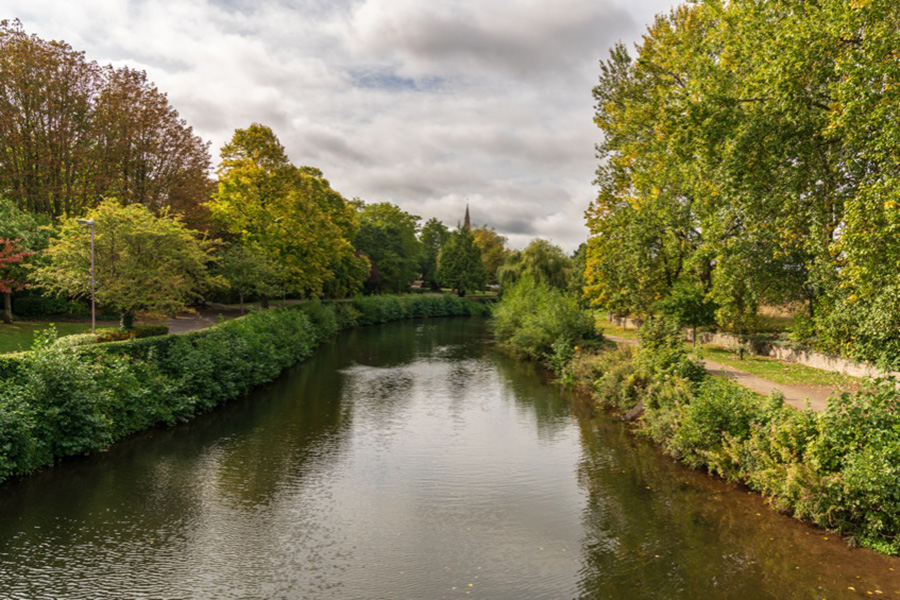Wessex Water are offering funding support to farmers and land managers in parts of the River Tone, Parrett and Yeo catchments to mitigate the impacts of phosphorus. The 28 July 2022 application deadline is fast approaching. Discover if you are eligible and let us ensure you don’t miss out!
Wessex Water has already removed around 85 tonnes of phosphorus from entering local watercourses through a wider programme of investment. The intention is to now enable landowners to reduce their impact whilst mitigating the financial pressures of doing so.
To do so, their phosphorus reduction scheme offers fixed-rate payments, which are detailed below.
Fixed-rate payments available under the phosphorus reduction scheme
- Growing cover crops after maize and other late-harvested crops: £80/ha as a one-off payment plus £20/ha supplement for establishing before 1 October.
- Maximum of 100/ha / £10,000 per farm business per year)
- Growing cover crops after combinable crops: £80/ha as a one-off payment plus £20/has supplement for establishing before 1stSeptember.
- Under sowing grass into maize: £100/ha as a one-off payment. Key requirement is to inter-row drill grass into maize by 10 July.
- Now unavailable
- Fencing to exclude livestock from watercourses: £8.00/m as a one-off payment. Replacement of existing fencing and fencing on extensively managed grassland is not eligible. However, funding may be available to for taking intensive grassland out of production through the erection of a new fence line further into the field. Upon request, funding for gates may also be available.
- Maximum payment of £5,000 per farm business per year
- Establishing new or wider riparian buffer strips: £500/ha per year for a 2.5 or 3-year agreement running from autumn 2022 until spring or autumn 2025. Key requirements are not to use any fertiliser or manure. No grazing is allowed.
- Maximum payment of 10ha / £5,000 per farm business per year
- Arable reversion to zero-input grass: £500/ha per year for a for a 2.5 or 3-year agreement running from autumn 2022 until spring or autumn 2025. Key requirement is not to use any fertiliser or manure. No grazing is allowed, except light grazing by sheep overwinter if desired.
- Maximum payment of 10ha / £5,000 per farm business per year
- Arable reversion to low/medium-input grass: £400/ha per year for a 2.5 or 3-year agreement running from autumn 2022 until spring or autumn 2025. Multiple cuts for hay/silage are permitted. Key requirement is not to use any phosphorus fertiliser or manure. Nitrogen (up to 100kgN/ha/yr). However, potash fertiliser applications are permitted. No grazing is allowed, except light grazing by sheep overwinter if desired.
- Maximum payment of 12.5ha / £5,000 per farm business per year
- Arable reversion to three-year legume fallow: £500/ha per year for a 3-year agreement running from after harvest 2022 to 15 August 2025. Establish legume mix immediately after harvest, cutting regularly in first year and at least once between 1 March and 15 May in years 2 and 3. You can also include grasses such as cocksfoot, perennial ryegrass or timothy in seed mix to help smother blackgrass and other competitive grass weeds. Key requirements are not to use any fertiliser or manure or to cut or graze.
- Arable reversion to three-year herbal ley: £400/ha per year for a 3-year agreement running from 1st September 2022 until 31 August 2025. Summer grazing by cattle and sheep and multiple cuts for hay/silage are permitted. Limited manure applications are permitted. Do not apply any nitrogen fertiliser. Phosphorus and potash fertiliser and lime applications are permitted, but only to maintain soil P and K indices of 2. Only light grazing by sheep is permitted over-winter.
Funding limits and application-scoring criteria
Due to a fixed annual budget, applications and funding will be awarded on a range of criteria and there will be funding limits for each farm business as per the above. However, if the applicant can demonstrate that the environmental benefits justify the additional expenditure then these may be considered.
There may be limits imposed on certain schemes if there is a higher intake than others.
Is the Wessex Water phosphorus reduction scheme right for you?
Most farms include around 5-10% of land that is less productive – often with restricted (or sometimes negative) gross margins. Utilising the land in different ways could help reduce overheads and increase the productive capacity of specific areas.
While grain prices are currently high, it is worth bearing in mind the volatility of variable costs in the market. Low-lying, wet, steep, and awkward areas of farmland may benefit from a gross margin analysis to identify those that would benefit from alternate income. AssetSphere can advise you on this and guide you through the process of arable reversion and buffer strips.
Any prospective applicants should be aware that, apart from BPS, fields currently funded by other schemes such as CSS, ELMS or carbon offsetting will not be eligible. However, DEFRA have announced that farmers will be able to enter land into the SFI 2022 if the land is in a private sector-scheme. This position will be reviewed annually.
Wessex Water are also encouraging applications from those interested in creating leaky runoff ponds; constructed farm wetlands to treat field runoff and ditch/drain flow; phosphorus removal structures for field drains and ditches; hedgerow creation; or tree planting.
These proposals will be eligible for capital grants that cover between 50% and 100% of the up-front design, establishment, and construction costs. Again, AssetSphere would be happy to provide advice on this.
We can also analyse the potential income from the phosphorus reduction scheme against CSS or ELMS to ensure you take the approach that delivers the best value.
To see whether your farm would be eligible for funding, take a look at the interactive map on the Wessex Water website or get in touch with us.

